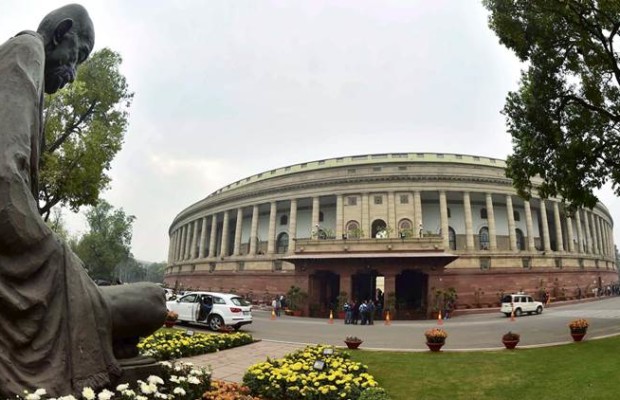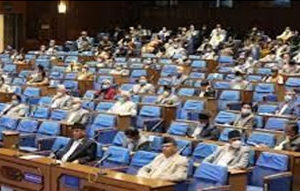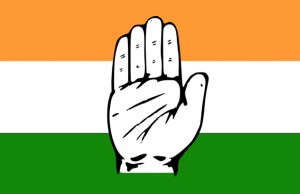DIVERSE INDIA HAS ZERO OPTIONS
By Pankaj Sharma on March 2, 2016
The parliamentary system of democracy, as envisaged by our founding fathers, remains India’s best option today.
Arun Jaitley took the Rajya Sabha route to become Union Finance Minister after losing his Lok Sabha contest in May 2014 when the “Modi Wave” was at its peak. Last week, he reiterated his belief that the powers of the Rajya Sabha should be curbed.
And then we have Shashi Tharoor, a former minister of the Congress-led United Progressive Alliance government, who said that the Parliamentary system was “ill-suited” to Indian national character.
One believes that the Rajya Sabha, the Upper House, should have less of a say in policy decisions. In spite of having a clear majority in the Lok Sabha, the ruling Bharatiya Janata Party-led government has been unable to dictate terms in the passage of crucial bills due to its insufficient numbers in the Rajya Sabha. Meanwhile, the other finds the entire parliamentary system—Lok Sabha and Rajya Sabha—counterproductive for a nation that is so diverse.
The timing of Jaitley’s campaign for a less powerful upper house and the resurfacing of Tharoor’s age-old views seems interesting. The sudden keenness of both these political celebrities to initiate a national debate on the subject cannot be ignored by a student of politics like me. There appears a clear intent to either snatch the inherent powers of the Rajya Sabha or go in the direction of a presidential system of government.
Are there any links between the launch of these testing balloons and the rapidly declining popularity graph of the Modi government? Is it a mere coincidence that a particular set of the so-called “intelligentsia” in Indian politics is taking a particular line, which is totally ignorant of their ideological and party affiliations? To stress the irrelevance of one house of the parliament or to question the relevance of the whole parliamentary system provide enough hints, keeping in view 2019 when Narendra Modi will attempt to recapture Raisina Hills.
It is not a surprise that Jay Panda of the Biju Janta Dal had initially joined Jaitley’s chorus until his party officially distanced themselves from him. The BJP’s irritation with the Upper House is based on Bills that have run into the Rajya Sabha stonewall. It is the only chamber where the opposition still has a voice after the freak 2014 verdict.
Denigrating the Upper House of Parliament is the primary motive of the people, who currently or at some point see their future with the ruling clan. At the recent Ideas India Conclave in Goa, organised by a right-wing think tank headed by National Security Advisor AjitDoval’s son, Panda was a lead speaker at a session on “New Politics”.
Supporters of such “New Politics” want us to realise how the role and functions of the House of Lords in the United Kingdom are curbed in order to grant primacy in legislative matters to the duly elected House of Commons. Very early in the 20th century, the House of Lords was stripped of its veto power on how the government spent its money. Its powers to sit over Bills passed by the Commons, too, were largely restricted.
Is our Rajya Sabha another House of Lords? No. Our founding fathers have told us that it is the House of States. Suffice to say, the original stipulation that members of the Rajya Sabha be “residents of the State” from which they are to be elected has been made irrelevant.
It is true that we need to rescue the Rajya Sabha from its current state as a parking place for unelected and unelectable underlings of the party bosses. But any step to curb its powers is dangerous to the basic principles of parliamentary democracy. The role of the upper house is of a deliberative body that balances the fickleness and passion of an elected lower house.
Let us now come to Tharoor’s views. He feels that only a Presidential form of democracy can provide the highly pulsating Indian Polity with much-needed stability. He must also know that in a presidential form of democracy there is stability but with less responsibility. I remember the days of a political storm created 32 years ago when in the last week of April 1984, Vasant Sathe, the then Union Minister in Indira Gandhi government, initiated a debate on the issue for the first time in India. United by the fear of Indira Gandhi’s “intentions”, the opposition immediately rallied together in voicing its criticism of what it saw as an attempt to “subvert democracy”.
Sathe’s initiative received no approval from Indira Gandhi. But the then opposition had no hesitation in perceiving her hand behind the campaign. BJP leader Atal Bihari Vajpayee had said, “We will not support such a move. We will fight tooth and nail and not allow her to implement her evil designs of imposing dynastic rule through the back door.” Lok Dal leader Charan Singh said, “Mrs. Gandhi’s concept of a presidential form of government is a naked form of dictatorship.” The controversy went on to for the next 4-5 months.
It’s not by chance that I recall the events of a Sunday evening on 26 August 1984, when nearly 60 Congress MPs including Darbara Singh, Amarjit Kaur, Najma Heptulla, Saroj Khaparde, Sultan Singh, Ram Chandra Bhardwaj, Kamal Nath, and Pratibha Singh were present at a dinner held at the Parliament House Annexe where Sathe rose to say, “In the present situation, no party including the Congress(I) may get an absolute majority in the next Lok Sabha; so, this may be the last chance to change the country’s Constitution and make the chief executive directly elected by the people.”
There is no harm if a study on the different systems of government prevailing in other parts of the world is conducted even today to find out the most suitable system of governance for a country like ours. India has zero options viz-a-viz parliamentary democracy. But the soft-selling of a presidential system of government and questioning the powers of Rajya Sabha must make us cautious about the intentions of today’s ruling party too.
← Previous Story RAHUL GANDHI AND DALIT MIND SPACE
Next Story → ART OF LOBBYING FOR NOBEL PRIZE
SPONSORED
-
Recent Posts
Recent Comments
Archives
- August 2024
- July 2020
- February 2018
- January 2018
- December 2017
- November 2017
- October 2017
- September 2017
- August 2017
- July 2017
- May 2017
- April 2017
- March 2017
- February 2017
- January 2017
- December 2016
- November 2016
- October 2016
- September 2016
- August 2016
- July 2016
- June 2016
- April 2016
- March 2016
- February 2016
- January 2016
- December 2015
- November 2015
- October 2015
- September 2015
- August 2015
Copyright © 2015 Global India Investigator | GII Portal Powered by Designage Works




You must be logged in to post a comment Login